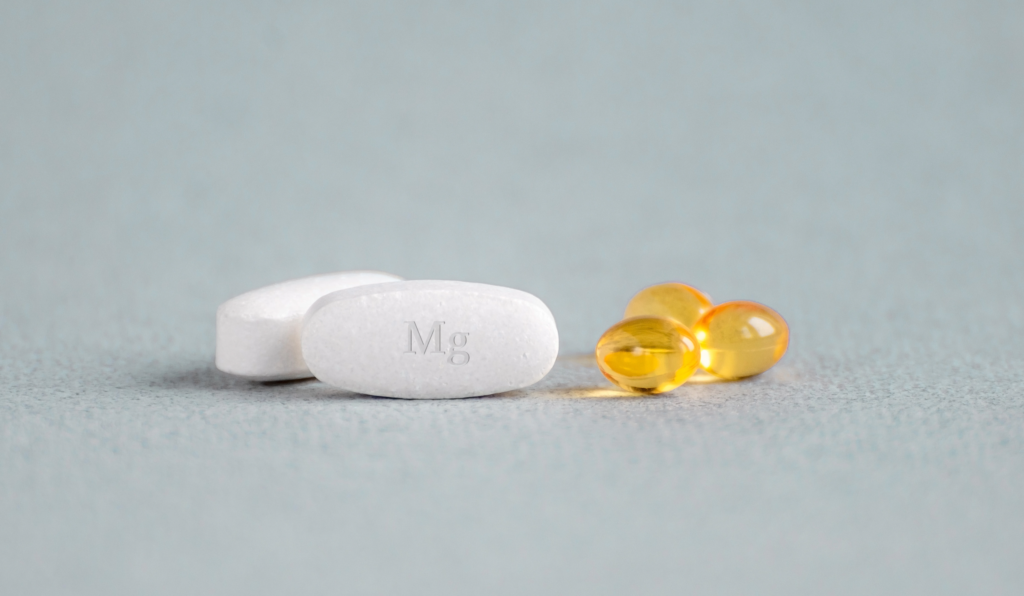Essential Nutrients for Your Health

Our bodies rely on a variety of essential nutrients to function optimally. These nutrients are vital for maintaining health, supporting bodily functions, and preventing chronic conditions. Without them, our physical and mental well-being can be significantly compromised. In this blog, we’ll dive into the key nutrients that are crucial for your health and explore their roles in maintaining balance and vitality.
1. Carbohydrates: The Body’s Primary Energy Source
Carbohydrates are often misunderstood, but they are essential for fueling our bodies. They are the body’s primary source of energy and provide the fuel necessary for the brain, muscles, and nervous system to operate effectively. When you consume carbohydrates, they are broken down into glucose, which your body uses for energy. There are two main types of carbohydrates: simple and complex. Simple carbs, found in foods like fruit, milk, and sugary snacks, are quickly digested and provide quick energy. Complex carbs, found in whole grains, legumes, and vegetables, take longer to digest and provide a more sustained energy release.
Incorporating a balance of complex carbs into your diet is crucial for energy levels throughout the day. Whole grains like brown rice, quinoa, and oats provide fiber, which helps regulate blood sugar levels, supports digestive health, and can lower cholesterol. Including a variety of carbohydrate-rich foods ensures your body has the energy it needs while also promoting digestive and cardiovascular health.
2. Proteins: The Building Blocks of the Body
Proteins are critical for the growth, repair, and maintenance of body tissues, including muscles, organs, and cells. They are composed of amino acids, which are the building blocks for nearly all bodily functions. While the body can produce some amino acids, others, known as essential amino acids, must be obtained through food sources.
Adequate protein intake is necessary for maintaining muscle mass, supporting immune function, and ensuring the body’s ability to repair itself after injuries or physical activity. Sources of protein include animal products like meat, poultry, fish, eggs, and dairy, as well as plant-based options like beans, lentils, tofu, and nuts. A varied protein intake ensures you receive a broad range of amino acids to support your body’s various needs.
For those who are active or trying to build muscle, protein intake is particularly important. Consuming protein after workouts helps repair muscle fibers and promotes muscle growth. The recommended amount of protein can vary depending on age, sex, and activity level, but generally, adults should aim for about 0.8 grams of protein per kilogram of body weight per day.
3. Fats: Essential for Cellular Function and Hormonal Balance
While fats have received negative attention in the past, they are an essential nutrient that plays a key role in maintaining overall health. Fats help absorb fat-soluble vitamins (A, D, E, and K), provide energy, and are integral to the structure of cell membranes. Additionally, fats support brain function, hormone production, and immune system health.
Not all fats are created equal, however. Healthy fats, such as those found in avocados, nuts, seeds, and olive oil, are essential for overall health and provide anti-inflammatory benefits. Omega-3 fatty acids, found in fatty fish like salmon and in flaxseeds, walnuts, and chia seeds, are especially beneficial for heart health, cognitive function, and reducing inflammation in the body.
On the other hand, trans fats and excessive saturated fats, commonly found in processed foods, fried foods, and fatty cuts of meat, can contribute to weight gain, heart disease, and inflammation. By choosing healthy fats, you can support your body’s cellular function and hormonal balance.
4. Vitamins: Vital for Bodily Processes
Vitamins are organic compounds that our bodies need in small amounts to perform various functions. These micro-nutrients help in energy production, immune function, cell growth, and the healing process. Vitamins are divided into two main categories: water-soluble and fat-soluble.
Water-soluble vitamins, including Vitamin C and the B vitamins, are not stored in the body and must be replenished regularly through diet. Vitamin C supports immune function, skin health, and wound healing, while B vitamins, such as B12 and folate, are critical for energy production, red blood cell formation, and brain function.
Fat-soluble vitamins, like Vitamins A, D, E, and K, are stored in the liver and fatty tissues for later use. Vitamin A is essential for vision and immune function, Vitamin D supports bone health and immune defence, Vitamin E acts as a powerful antioxidant, and Vitamin K plays a key role in blood clotting and bone health.
To ensure adequate intake of vitamins, eat a variety of fruits, vegetables, whole grains, and healthy fats. If you have concerns about nutrient deficiencies, consult a healthcare professional for advice on supplementation.
5. Minerals: Key for Bone Health, Hydration, and More
Minerals are inorganic substances that the body needs in small amounts to carry out many important functions. They support bone health, regulate fluid balance, enable muscle function, and are essential for the production of red blood cells. Two types of minerals are required by the body: major minerals and trace minerals.
Major minerals, such as calcium, magnesium, potassium, and sodium, are needed in larger amounts. Calcium is crucial for bone and dental health, while magnesium supports muscle and nerve function, as well as energy production. Potassium helps regulate blood pressure and fluid balance, and sodium is important for maintaining hydration and nerve function.
Trace minerals, including iron, zinc, iodine, and selenium, are required in smaller amounts but are equally important. Iron is necessary for oxygen transport in the blood, while zinc supports immune function, wound healing, and protein synthesis. Iodine is needed for thyroid function, and selenium acts as an antioxidant, protecting cells from damage.
Eating a varied diet that includes dairy, leafy greens, nuts, seeds, and whole grains can help ensure that your body receives an adequate supply of these important minerals.
6. Water: The Vital Nutrient for Hydration and Detoxification
Water is often overlooked as a nutrient, yet it is arguably the most important. The human body is made up of around 60% water, and it is involved in nearly every bodily function, including digestion, nutrient transport, temperature regulation, and waste elimination. Staying hydrated is crucial for maintaining healthy skin, promoting detoxification, and ensuring optimal cellular function.
In addition to drinking water, you can stay hydrated by consuming water-rich foods like fruits and vegetables, including cucumbers, watermelon, and oranges. The amount of water you need depends on various factors such as age, sex, activity level, and climate, but a general guideline is to drink at least 8 cups (2 liters) of water a day.
Consulting Your Healthcare Provider
When making changes to your diet, it’s important to consult with your healthcare provider, especially if you have existing health conditions or concerns. A professional can help tailor recommendations to your individual needs, ensuring that any adjustments you make are safe and beneficial. Personalized guidance ensures that you are not only meeting your nutrient requirements but also optimizing your overall health in a sustainable way.
Each of these essential nutrients plays a pivotal role in maintaining overall health. A balanced diet that incorporates a variety of nutrient-rich foods ensures that your body has the building blocks it needs to function at its best. By prioritizing these nutrients—carbohydrates, proteins, fats, vitamins, minerals, and water—you’ll support your body’s systems, increase energy levels, and enhance your overall well-being. Remember, the foundation of good health starts with proper nutrition, so make sure your diet reflects the essential nutrients your body requires.




